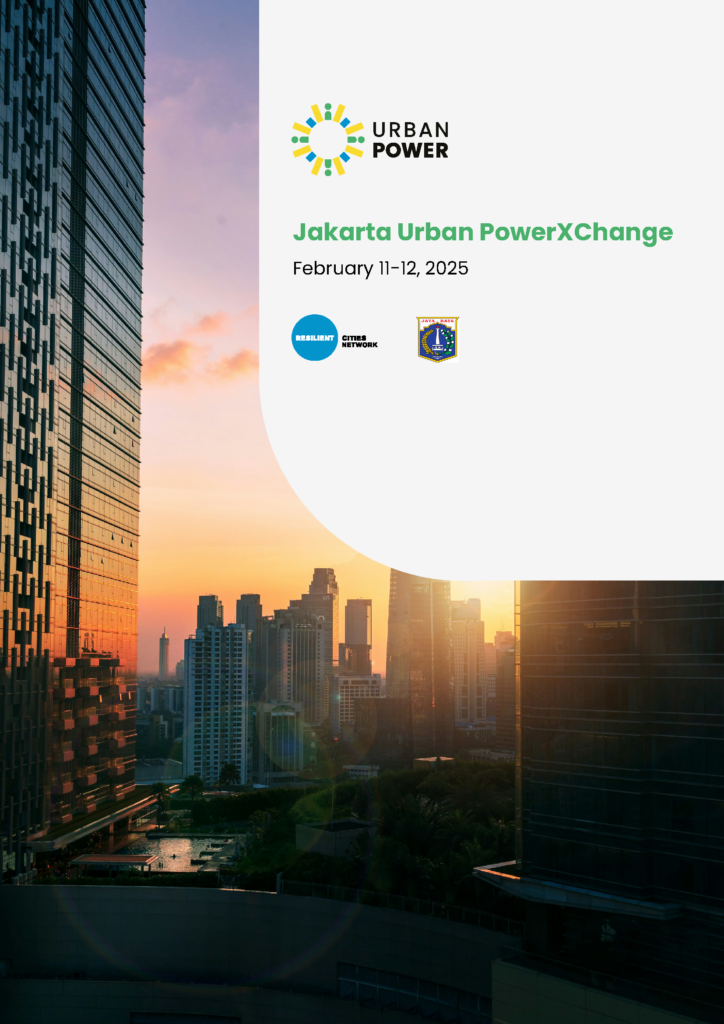Cities across Southeast Asia are on the frontlines of a dual challenge: meeting rising energy demands while navigating the escalating impacts of climate change. From Jakarta to Penang, urban areas are confronting growing risks—coastal flooding, extreme heat, infrastructure stress—that test their ability to provide safe, reliable and inclusive energy systems.
This new report, grounded in the insights and collaboration from the Urban PowerXChange held in Jakarta, explores how cities are advancing energy resilience not just as a climate solution, but as a pathway to equity, economic inclusion and long-term urban wellbeing. It draws from the experiences of six cities that came together in Jakarta to share strategies, co-develop solutions, and commit to action. It highlights the urgent need for cleaner, decentralized, and people-centered energy systems and shows how local governments, despite limited control over national infrastructure, can lead transformative change. As climate pressures intensify, energy resilience will be key to ensuring Southeast Asian cities can adapt, thrive and protect their most vulnerable residents.

Resilient Cities Network’s Urban Power program, launched in 2022, is designed to assist cities in increasing the resilience of their energy systems in the face of major global challenges, including climate change, urbanization and increasing inequality. The program takes a holistic view of the energy system, looking not only at the resilience of local energy infrastructure but also the critical value of energy governance, stakeholder engagement and the interdependence of urban systems for a resilient energy system.
